Restoration of peace and normal routine of daily life, compared to the past, stands out as its most significant achievement, observes Mohammad Sayeed Malik, the veteran commentator on Kashmir affairs, four years after the abrogation of Article 370.
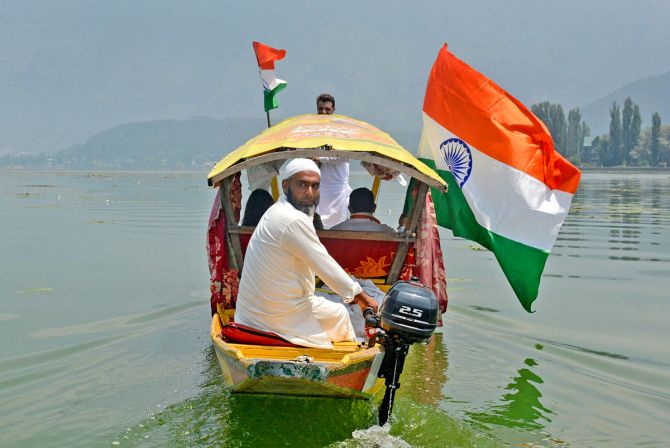
It took the Supreme Court four long years to find time for taking up plethora of writ petitions challenging the validity of the government's drastic action in Jammu and Kashmir -- revocation of Article 370, downgrading and splitting Jammu and Kashmir state into two Union Territories.
Even so, there is no definite sign yet of when and how the Union government intends to sort out its crucial political aftermath and restore the democratic power structure.
Restoration of the UT's erstwhile state level status is a popular demand almost across the board.
Shekhar Gupta: Why Statehood Needs To Be Restored In J&K
Political vacuum caused by the Centre's action on August 5, 2019 continues to overhang, notwithstanding the superficial show of activity mainly by the BJP.
Other (dispossessed) mainstream parties, notably the National Conference (NC), the Peoples Democratic Party (PDP) and the Congress, remain bereft of a viable political narrative.
Their old Accession-centric narrative got washed out in the fallout of abrogation of the state's special Constitutional status under Article 370.
Newly floated Apni Party headed by Altaf Bukhari, Sajad Ghani Lone's Peoples Conference and Ghulam Nabi Azad's Democratic Progressive Azad Party, all perceived to be tilting towards the NDA, have been active, but their actual worth on the ground remains untested in the prevailing politico-constitutional vacuum.
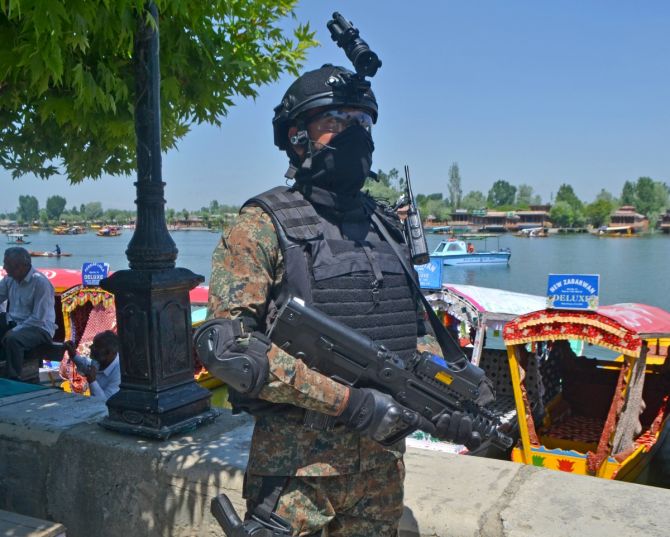
The central government's silence over the demand for early Assembly elections is intriguing.
Six years long central rule is beginning to yield diminishing returns. Largely, because this arrangement, even if run efficiently, lacks legitimate representative character.
However, restoration of peace and normal routine of daily life, compared to the past, stands out as its most significant achievement.
It is after a long time that various spheres of public and social life in the state, in general, and the Valley in particular, are back to normal routine without disruption. Sense of relief on that account is palpable. But, at another level, that is not enough nor a substitute for a normal democratic setup at the helm.
Denial of popular, representative power structure for too long has its own inherent negative implications.
Not only in Kashmir and Jammu regions but also in (separated) UT Ladakh region too law of diminishing returns is becoming more palpable with each passing day.
Whenever the assembly polls are held, its outcome would essentially be the first popular verdict on the Centre's drastic action on the political constitutional front taken four years ago.
And that would also be the test bed for gauging the political muscle of the atrophied contenders like NC, PDP and the Congress.
For BJP, playing with highest ever stakes in J&K, the poll outcome is of crucial significance. It is leaving nothing to chance. Inexplicable delay in holding the assembly elections is ascribed to the BJP's hesitation in taking the fateful plunge.
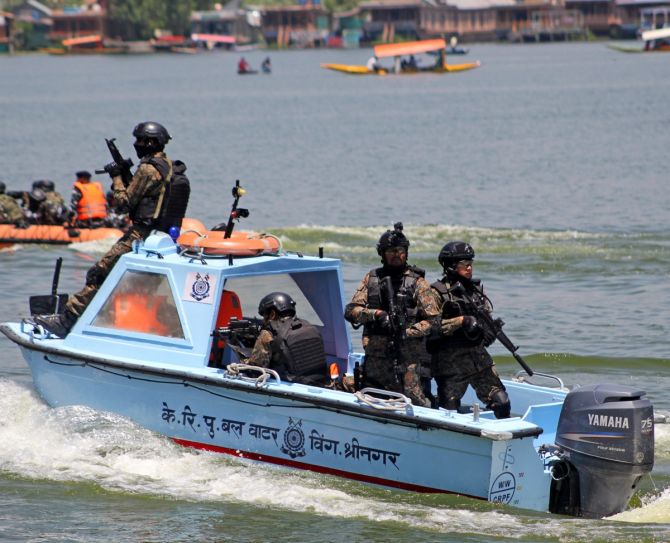
The party and its government at the centre have left nothing to chance. Every conceivable factor involved in election arithmetic is being taken care of.
But, in the process, the BJP's underbelly is also getting exposed. Hesitancy in taking the electoral plunge, even after drastic 'engineering' in administrative, constitutional and electoral spheres is anything but a promising sign of its self-confidence.
After the completion of the radical delimitation of assembly and parliamentary constituencies last year it was expected that the assembly elections would follow sooner than remain later.
False indications continue to appear from time to time, but as of now the general perception is that the BJP is unsure of its own strength.
Its deep longstanding desire to come to power in Muslim-majority J&K, for obvious reasons, is too transparent to hide.
This, more than any other factor, is believed to be the actual reason for prolonging the existing arrangement and delaying assembly polls.
Ironically, this hesitancy is yielding diminishing returns, going by the perceptible ground reality.
These fears about the BJP's 'intentions' tend to get accentuated with belated changes in the structuring of the new legislative set-up.
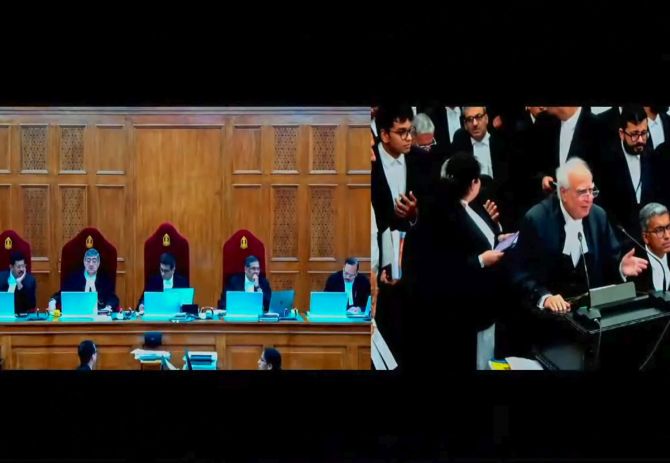
Only a few days ago, long after the finalisation of massive delimitation process, the Union government moved a bill in Parliament seeking to create three 'nominated' category seats in the J&K legislative assembly. Also, the provision for more seats than before, under the 'reserved' category, has already been made.
It is not that other contenders in the fray are any better.
Over the past five years since the last assembly polls, the NC, PDP and the Congress have suffered significant attenuation in their ranks, mainly because of the no-holds-barred poaching by the BJP and other outfits blessed by the ruling establishment.
This camp also suffers for want of a saleable coherent political narrative after they were virtually robbed of the pre-2019 political plank in the wake of abrogation of Article 370.
However, for the time being, they can draw comfort from the fact that they are perceived to be on the 'right side' of the judicial battle over abrogation of the state's special Constitutional status.
Also, their performance in the district and block level elections held under the central rule and under anything but free, fair conditions, was reassuring.
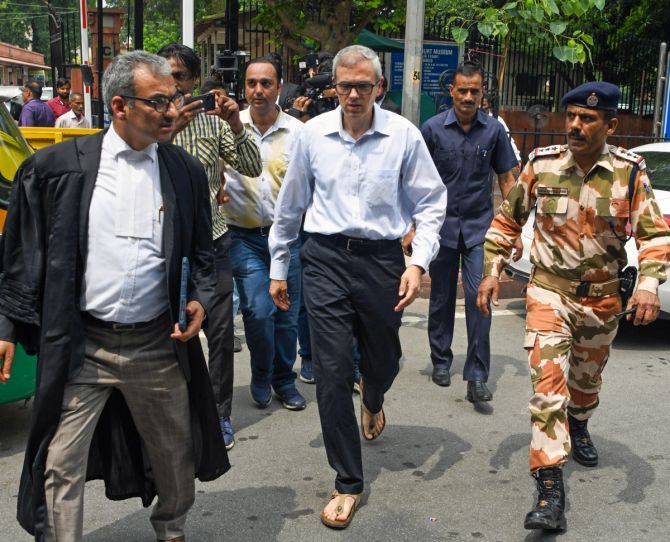
Start of the ongoing proceedings in the Supreme Court in the Article 370 case coincide with the run0up to the fourth anniversary of its abrogation.
For the first time the state administration has stepped out for what looks to be a mega projection of the event.
The three previous anniversaries passed off virtually unnoticed.
Perhaps because 2023 happens to be a pre-election year at the national level highlighting this mega political achievement makes understandable sense for the party in power.
Huge billboards have come up in the two state capitals, Srinagar and Jammu, 'celebrating abrogation of Article 370'.
Even though this move is not in consonance with well known popular sentiment in Kashmir the state administration has thought it fit to go ahead with it.
Proceedings in the apex court provide an interesting parallel with its live telecast attracting sizeable viewership across social media.
Feature Presentation: Rajesh Alva/Rediff.com
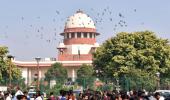



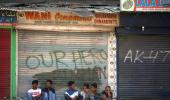






 © 2025
© 2025